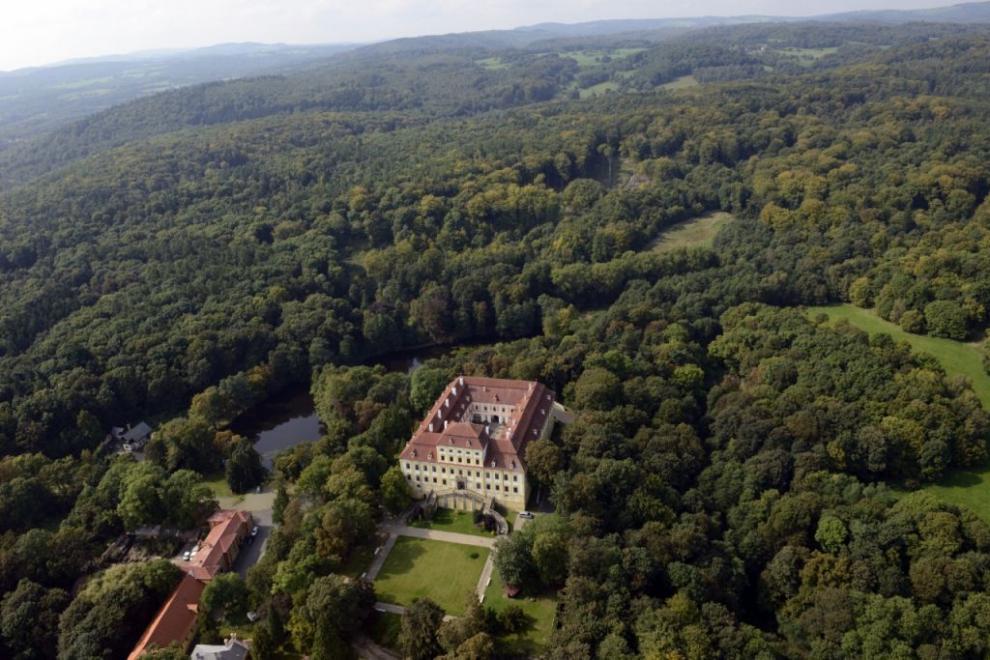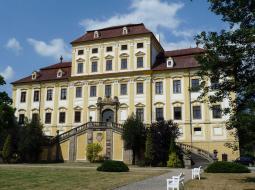Thessaloniki gets ready for its metro launch in November
The underground rapid transit lines have been under construction for almost two decades due to various project delays
 TheMayor.EU logo
TheMayor.EU logo 
Jirkov lies in the border region of the so-called Sudetenland, where until 1945 the German population predominated. The Czech town, also called Borek or Jurkov, was founded as a German colony village in the Czech-Saxon border area. Its origins are not precisely known, but it is believed it was founded in the 13th century. Around the year 1300 the construction of a Gothic church in Jirkov was documented. Near the village stands the Red Castle, whose origin dates to the beginning of the 15th century.
During the siege of the Hussite troops in 1421, Jirkov was reportedly saved by a fog. The castle, however, was conquered and looted.
City rights were recognized on 25 February 1455 by King Ladislaus the Posthumous and confirmed by Vladislaus II Jagiellon (1507) for the first time. A brewery built in the 1480s was a local point of pride for many years but was burned down in 1994 and was then demolished in 2006.
Jirkov prospered in the 16th century thanks to the noble families who governed it. In the years 1555 - 1595 a system of underground corridors was established under the town, later used, among other things, as brewery cellars.
After the Battle of White Mountain (1620) the city lost almost all rights and was robbed many times by passing armies during the Thirty Years' War. The Red Castle, destroyed during the events of the war, was later rebuilt into a two-story Baroque chateau with a chapel.
Later, manufactory workshops were constructed and since 1854 the town has had a post office and a savings bank since 1869.
The importance of the city increased with the building of the railway in 1872. In 1874, a fire brigade was established, and the electricity network was installed in 1911. From the early 1920s to the mid- 1930s, the famous Kludský circus sprung in the town. According to the Munich Agreement of 1938 Jirkov became part of Germany. With the annexation of the Sudetenland many Czechs, Jews and German anti-fascists fled or were expelled. After the end of World War II, as a result of the displacement of the original German population to Germany, the structure of the local communities changed significantly.
Jirkov is a town and municipality in the Czech Republic. It belongs to the Ústí nad Labem Region and in particular – to the Chomutov district. The City Council is the supreme body of the city. It consists of 25 members elected. The mayor and deputy mayor are elected from the council members.
The biggest companies in Jirkov include Preciosa, EBJ product and Sawmill. Other major job opportunities include the concrete plant Gelner, Slaughterhouse, etc.

The town of Jirkov offers its inhabitants and visitors a range of possibilities for living, education and leisure. Its convenient location benefits primarily from the immediate vicinity of the Ore Mountains, natural attractions and monuments, as well as connections to major transport routes and the nearby town of Chomutov. In addition, both cities are connected by public transport lines. Jirkov, which lies at an altitude of about 300 meters above sea level, is also easily accessible from the German side.
The landmarks not to miss include St. Giles Church with the city tower, the Urban Cellars and the Red Castle.
People from the surrounding area also come to Jirkov for the traditional Mining Fair in September or the October Song Choir Festival, which builds on the long-standing tradition of choirs composed of pre-schoolers to seniors.
nám. Dr. Dr. E. Beneše 1
431 11 Jirkov, Czechia